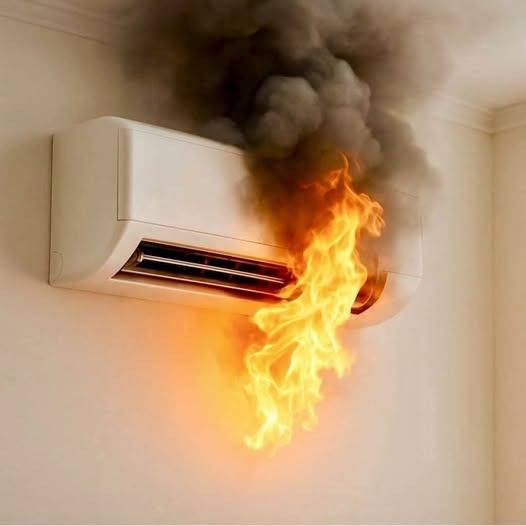Air conditioning systems are essential for the comfort of homes and businesses, but they pose a significant fire and explosion hazard if not properly maintained or installed. Understanding these hazards is important to prevent dangerous incidents that could result in property damage, injury, or death. Here are the five most common causes of fires and explosions in the region.
Herbal Teas
1. Electrical Faults and Faulty Wiring
Electrical problems are the most common cause of fires. Faulty wiring, loose connections, and overloaded circuits can generate excessive heat, which can cause sparks and fires. Common electrical problems include damaged power cords, corroded connectors, and improper installation of electrical components. When electrical systems fail, arcing can occur, generating intense heat and igniting nearby materials. To avoid these risks, regular electrical inspections and proper installation are essential.
2. Refrigerant Leaks and Improper Handling
Modern air conditioning systems use refrigerants that are generally safe in enclosed spaces, but can be dangerous if they leak or are mishandled. Some refrigerants are flammable and can create an explosive atmosphere if they leave the system and come into contact with ignition sources. Furthermore, they can decompose into toxic gases if they come into contact with open flames or hot surfaces. To prevent such incidents, proper refrigerant handling, leak detection, and professional maintenance are essential.
3. Overheating Components and Poor Ventilation
Air conditioning systems generate heat during operation, and inadequate ventilation can cause components to overheat. If compressors, motors, or other mechanical parts operate beyond their designed temperature limits, they can ignite surrounding materials or cause internal failures that can lead to fires. Blocked vents, clogged filters, and clogged outdoor units restrict airflow and contribute to overheating. Regular cleaning and proper ventilation of air conditioning systems are important preventative measures.
4. Dirty Filters and Dirt Buildup
Continued from recipe on next page
Continued on next page 4. Dirty Filters and
Dirty Buildup Neglected maintenance poses a significant fire hazard. Dirt restricts airflow, forcing the system to work harder and generate more heat. Filters heavily clogged with dust, lint, and dirt can ignite from sparks or excessive heat. Likewise, debris near outdoor units, including leaves, grass, and other flammable materials, can ignite if they overheat or cause electrical problems.
Herbal Teas
5. Improper Installation and Maintenance Improper
installation practices and maintenance pose many fire and explosion hazards. Improperly sized units, incorrect electrical connections, and failure to follow manufacturer’s instructions can lead to dangerous situations. In addition, the use of incompatible parts, failure to adhere to regular maintenance schedules, and repairs performed by DIYers without proper knowledge can compromise the safety of the system. To avoid these risks, proper installation and regular maintenance by qualified technicians are essential.
Prevention is key
Preventing air conditioning fires and explosions requires a combination of professional installation, regular maintenance, and careful monitoring. Schedule annual professional inspections, change filters regularly, clean debris from outdoor units, and immediately address any unusual noise, odor, or performance issues. By understanding these five critical hazards and taking the appropriate preventative measures, you can ensure your air conditioner will operate smoothly for many years to come.
